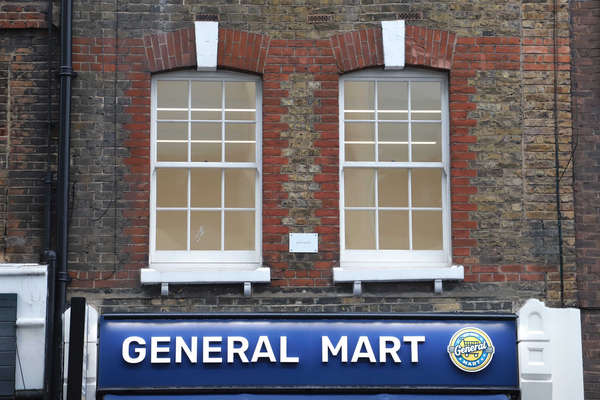Artists
- Abstract
- Ceramics
- Drawing
- Figurative
- Installation
- Mixed media
- Painting
- Photography
- Sculpture
- Textile
- Video art
Categories
- West
- Central
- East
- South
Area
RESULTS FOUND
SORT BY:
Favourite
-


Ab-Anbar
Central -

ai. gallery
East -


Albion Jeune
Central -


Alice Amati
Central -


Alison Jacques
Central -


ALMA PEARL
East -

Amanda Wilkinson
Central -

Ames Yavuz
Central -

Annely Juda Fine Art
Central -


ANNKA KULTYS GALLERY
East -

Arcade
South -

Ben Hunter
Central -


Bernheim
Central -

Blue Shop Cottage
South -

Bluerider ART
Central -


Canopy Collections
Central -

Cecilia Brunson Projects
South -


Cob
Central -

Cooke Latham Gallery
South -


Copperfield
South -


Cristea Roberts Gallery
Central -


David Zwirner
Central -

DES BAINS
Central -


Edel Assanti
Central -


Elizabeth Xi Bauer
Central -

Elizabeth Xi Bauer
South -

Emalin
East -

Emalin: The Clerk's House
East -


Flowers Gallery
Central -


Frith Street Gallery
Central -


Galerie Max Hetzler
Central -


Gallery 1957
West -


Gazelli Art House
Central -


Goodman Gallery
Central -


GRIMM
Central -


Grosvenor Gallery
Central -


Hales Gallery
East -


Hannah Barry Gallery
South -


Haricot Gallery
Central -


Harlesden High Street
West -


Hauser & Wirth
Central -

Hazlitt Holland-Hibbert
Central -


Herald St
East -

Herald St | Museum St
Central -


Hollybush Gardens
Central -


Holtermann Fine Art
Central -

Ilenia
East -


IMT Gallery
East -


Indigo+Madder
Central -


IONE & MANN
Central -


JD Malat Gallery
Central -

Josh Lilley
Central -


Kate MacGarry
East -

Kearsey & Gold
Central -


Kristin Hjellegjerde Gallery
South -

Krupa
Central -


LAMB Gallery
Central -

Larkin Durey
Central -


LBF Contemporary
Central -


Lehmann Maupin
Central -

Levy Gorvy Dayan
Central -

Lungley
Central -

Luxembourg + Co.
Central -


Lyndsey Ingram
Central -

MAMOTH
Central -

MASSIMODECARLO
Central -

Matt Carey-Williams
Central -

Maureen Paley
East -


Maureen Paley
East -

Maureen Paley: Studio M
East -


Maximillian William
Central -

Modern Art Bury Street
Central -


Modern Art Helmet Row
East -


mother’s tankstation
East -


Nahmad Projects
Central -


New Art Projects
-

Nicoletti
East -


Niru Ratnam
Central -


No.9 Cork Street
Central -

NORITO
Central -


Opera Gallery
Central -


Pace Gallery
Central -

Pale Horse
Central -


Palmer Gallery
Central -

Patrick Heide Contemporary Art
Central -


Perrotin
Central -


Pi Artworks
Central -


Pilar Corrias Conduit Street
Central -


Pilar Corrias Savile Row
Central -

piloto pardo
Central -


Pipeline
Central -


PM/AM
Central -


Public Gallery
East -


Richard Saltoun Gallery
Central -

Rose Easton
East -

Sadie Coles HQ Bury Street
Central -

Sadie Coles HQ Kingly Street
Central -


Sadie Coles HQ Savile Row
Central -


Sadie Coles HQ The Shop
Central -

Seventeen
East -

Sid Motion Gallery
South -


Sim Smith
South -


SLQS Gallery
East -


Soft Opening
East -


Soup
South -

South Parade
Central -

Sprovieri
Central -


Sprüth Magers
Central -


Studio/Chapple
South -


Sylvia Kouvali
Central -


Thaddaeus Ropac
Central -

The Approach
East -

The Mayor Gallery
Central -


The Rebecca Hossack Art Gallery
Central -

Thomas Dane Gallery
Central -

Timothy Taylor
Central -

TINA
Central -


Tiwani Contemporary
Central -

Union Pacific
Central -

Union Pacific
East -

Victoria Miro
East -

Vigo Gallery
Central -

Waddington Custot
Central -

White Cube Bermondsey
South -

White Cube Mason's Yard
Central -

William Hine
South -

Workplace
Central -

Yamamoto Keiko Rochaix
East
































































































































